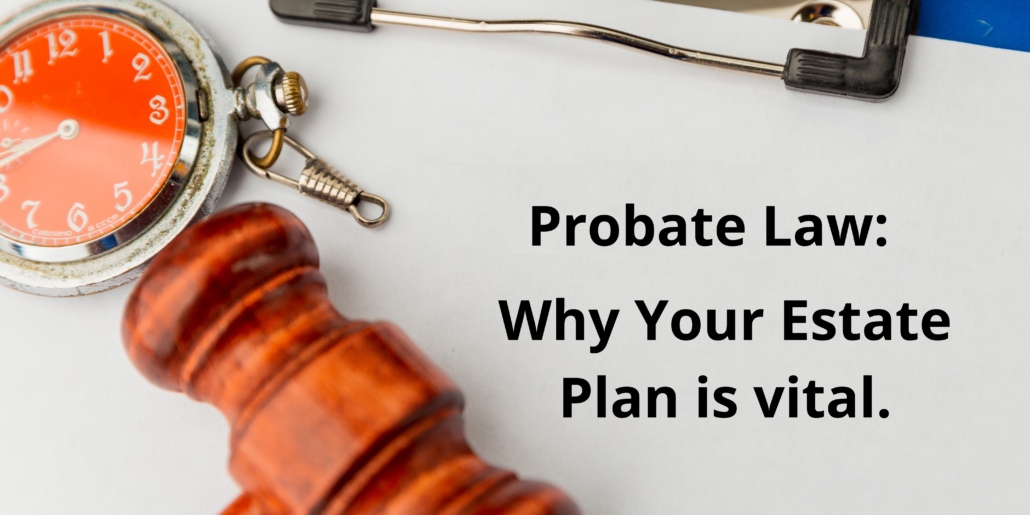Estate Planning is the process of creating legally enforceable documents that determine how your assets will be distributed upon the event of your death. Your estate plan, just as it sounds, refers to your personal plan for your estate, including who inherits what, which assets and how those assets will be distributed to your beneficiaries or heirs.
There may be many reasons why a person should update their estate plan, but generally, you should look to update your estate plan after a major life event, such as getting married, getting divorced, or after having a baby. Keeping your estate plan up to date allows you to best ensure that your wishes for your estate are followed and that your legacy is protected. Read on to learn about some of the common reasons or major life events after which someone may need to update their estate plan.
- Marriage: Starting a life with your spouse brings with it many life-altering changes. But during this exciting time of wedding planning, honeymoon booking and even preparing for the eventual arrival of children, it’s vital that you don’t forget to keep your estate plan up to date. Doing so allows you to name your new spouse as an emergency contact or beneficiary for existing insurance benefits, and to ensure that he or she is taken care of in the event of your death.
- Divorce: Splitting up a marriage can be messy and costly. Updating your estate plan following the dissolution of a marriage is vital to ensure that your assets are split as per your wishes. Many people take their ex completely out of the equation, while some prefer to leave them something in their will. No matter what your decision may be, it is incredibly important to get your wishes on paper as soon as possible.
- Cash Infusion: If you receive a large salary increase at work or come into money through inheritance or chance, you’ll want to update your estate plan to accommodate a larger bank account.
- Having a Child or Having a Grandchild: Adding on to your family is a joyous occasion that calls for immediate alterations to your estate plan. Your new addition needs to become a beneficiary, and guardians must be named in your will. (This is also a great time to draft a will if you haven’t yet!) As you add on to your family over the years, you should continuously update your estate plan. It’s best to amend the documents so the new family members are named and specifically included in your estate plan.
- Your Life’s Circumstances or Relationships Change: A change in your life’s circumstances or your personal relationships could refer to the addition of a new child, grandchild, niece or nephew, or perhaps a new romantic relationship of close friend, which could lead you to want to alter your estate plan to specifically include new friends, romantic partners or family members in your estate plan. However, there may also be times when it is appropriate to remove someone who formerly was included in the estate plan, such as someone who has been irresponsible with money in the past or who is estranged from the family. You may also decide to include a charitable organization in your will.
- A Death in The Family: If you outlive some of the people named in your estate plan, you will need to update once again. If your Power of Attorney, Health Care Proxy, or Executor passes away you will need to name new ones. Also, should a beneficiary die, their inheritance should be reallocated immediately to other living heirs.
- Sickness: If you are diagnosed with a chronic or fatal illness you should begin planning before your condition worsens. As per your estate plan, you can decide who will make medical decisions on your behalf in the event you become physically unable. You can also use this opportunity to fill out a Do Not Resuscitate order if your state allows it.
- Changing Laws and Locations: Federal and state laws are constantly in flux and can impact your estate plan. Also, since different states have different laws, it is important to check with a legal professional once you move to a new area to see if any changes need to be made to your existing plan.
As you can see, there are many reasons a person would want to update their estate plan after a major life event. However, the importance of timeliness in updating your estate plan should not be underestimated. If you fail to keep your estate plan up to date for whatever reason, or if you suddenly become unable to update your estate plan (such as after falling ill or becoming incapacitated), your estate could end up in the hands of someone that you did not intend it to be for. The last thing you would want is for your estate and assets to go to someone you did not want it to go to and to fall out the hands of those you did want it to go to just because you did not speak to an estate planning attorney and update your estate plan.
If you need to make any changes to your estate plan after a major life event, you should do so as soon as possible so that you do not miss the chance to do so and to put your mind at ease knowing that your estate is in good hands. If you have not already created your estate plan or had a will prepared, you should consult with an estate planning attorney to get your documents drafted as soon as you can.
The attorneys at The Orlando Law Group represent individuals throughout Orlando, Waterford Lakes, Altamonte Springs, Winter Garden, Lake Nona, St. Cloud, Kissimmee, and throughout central Florida.
If you are dealing with an estate planning issue or looking to establish your own estate plan, please reach out to our office at 407-512-4394, fill out our online contact form.
If you have questions about anything discussed in this article or other legal matters, give our office a call at 407-512-4394 or fill out our online contact form to schedule a consultation. We have an office conveniently located at 12301 Lake Underhill Rd, Suite 213, Orlando, FL 32828, as well as offices in Seminole, Osceola and West Orange counties to assist you.














 At a recent speaking engagement, I shared my own personal family story about the dangers of not being prepared for one’s own mortality – and how that lack of preparation effects one’s family.
At a recent speaking engagement, I shared my own personal family story about the dangers of not being prepared for one’s own mortality – and how that lack of preparation effects one’s family.


















